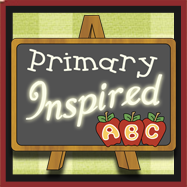In chapter 1, I found the statistics from the Dept. of Ed. to be disheartening but not really surprising. I would like to know what the statistic is for how many adults are not able to make change without a calculator. I bet it's up there, too. In the Forward, I marked the statement on pg. 14, "Indeed, many people perform mathematical calculations without understanding the underlying principles or meanings." So, many of the adults that can compute the interest paid on a loan, calculate miles per gallon on a trip, and calculate a 10% tip, probably can't explain the "why" of those computations.
Even knowing that teacher-centered instruction is not always the best way to teach math, I find myself resorting to it often, simply because it is easier. Planning for different groups takes time, something I find myself with very little of. Add to that the time it takes to make activities for math work stations and it gets even harder to teach small groups. But...I know in my heart it will be better for my students.
I like the Review and Reflect questions at the end of the chapter...
Think of the way you currently teach mathematics.
1. What aspects of it are successful? I have been successful in not rushing the curriculum. I would rather spend time on a skill and give my students a chance to really know it before moving on. This has lent itself to my students being able to explain "how" and "why" we are doing particular things in math. This year I was better at using the correct math terms...I would explain to my firsties that since they were so smart, we had to use the grown up math words. They loved that! Also, taking the time to plan a little better made teaching math more enjoyable to me and, in turn, more enjoyable for my students.
2. What aspects of it trouble you? Why? I still struggle with what to do with my students that whiz through assignments and already know skills before I teach them. I thought the math work stations would meet their needs more, but they just whizzed through those, too! They would have all the math stations completed by mid-week and would ask me what they should do next. On the flip side, the struggling students would need more time than I had to give them in order to learn the concepts and then would never make it to the math work stations and would be so disappointed. So while I felt like I made some progress this past year in how I taught math, I still felt like I wasn't meeting the needs of those at the upper and lower ends of abilities.
3. Does your math instruction lead your students to a deep conceptual understanding of the math standards that they are learning? If so, what are you doing that contributes to that? If not, how do you think you would like to change your teaching? I think most of my students get a deeper understanding of math concepts but I don't think the struggling students do. When I reach the point of knowing a majority of the students are ready to move on, I get frustrated and then just try to get the struggling students to just be able to solve some of the problems, to heck with knowing why. This leaves me with the constant nagging in my head that some of my kids are slipping between the cracks. But...what am I supposed to do? The concept of guided math gives me a glimmer of hope that there is a what to teach to what everyone needs, when they need it, without leaving some kids bored or checking out because math is too easy or too hard for them.
If you would like to join in on the fun...

No comments:
Post a Comment